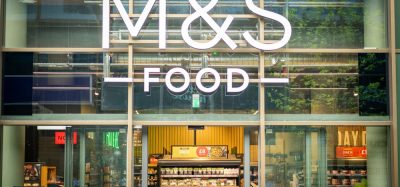How food insecure is the UK?
Posted: 7 September 2022 | Chris Elliott | No comments yet
Professor Chris Elliott reviews the trends identified in two of the FSA’s biannual surveys to assess the position of UK food security by numbers.


Food security, or rather insecurity, would have previously been a word more closely associated with the developing world. But in today’s unstable climate, the reality of food poverty in the UK – although it did exist – has become much more commonplace.
I’ve studied the topic of food insecurity for a good few decades and advised various agencies and governments on the topic, mostly in the developing word. But with the cost-of-living looming over our nation, it seemed apt to use this week’s column to examine some of the issues we are – and are yet to – face in Britain.
Definitions
The numbers I use come from the Food Standards Agency (FSA), a government organisation that many of us, including myself, trust to supply factual information. I also decided to use the United Nations’ (UN) definitions of food security as references for the article.
Food security
Food security exists when all people, at all times, have physical and economic access to sufficient, safe and nutritious food that meets their dietary needs and food preferences for an active and healthy life.
Moderate food insecurity
People who experience moderate food insecurity have to deal with uncertainties about their ability to access food. They will have, at times, reduced the quality or quantity of their food because they didn’t have the money or resources. It will likely negatively impact people’s nutrition, health and wellbeing.
Severe food insecurity
Severe food insecurity refers to a situation in which people have run out of food, experienced hunger, and/or have gone days without eating. This puts their health and wellbeing at serious risk.
FSA Food and You 2 survey examination
To identify developing trends, I examined two editions of the FSA’s biannual ‘Official Statistic’ survey, Food and You 2. This measures consumer knowledge, attitudes and behaviours related to a range of food issues among adults in England, Wale and Northern Ireland (so around 62 million citizens).
Six months ago, 85% of UK citizens were classified as being food secure. According to the latest report, this has fallen to 82%, indicating that, in a relatively short period, almost two million more people have shifted from food secure to insecure. This means the overall number now sits at more than 11 million citizens who are struggling to put food onto the table or be fed by others.
Among these 11 million, a staggering four million are suffering severe food insecurity and experiencing hunger and potentially starvation. The UK is referred to as one of the world’s leading economics – can it really still be described as so?
When did we last hear of such high levels of hunger in the UK, you may ask? Well, it was actually over a hundred years ago, in 1905, when the UK saw its first hunger march. It begs the question, will history repeat itself?
The FSA has also found that as many as 21% of households with children under 16 come under the bracket of food insecure. Thus, children are among the most hungry in our country, a totally appalling thought! It is also the disadvantaged that are bearing the brunt of food insecurity, with 27% of our population with a long-term health condition not having access to the food they need.
In terms of food bank use the numbers are equally bleak, with 4% of our population (approximately 2.5 million) receiving a free parcel of food from a food bank or other emergency food provider in the last 12 months.
Trying to contextualise all these numbers is a very difficult task. Many in the UK are struggling to feed themselves and their families. In fact, many more than I first thought and I’m sure I’m not alone in finding these statistics surprising.
It is difficult to argue against the prospect that even harder times are coming as a result of a chain of events we’ve seen, and that the very young, very old and very vulnerable will face the greatest degree of food poverty in our society.
It is also well known that poorly fed children do less well academically than those well-nourished, so some of the long term consequences of what is happening now will manifest itself in the future.
Moreover, very few of us do not recognise that poor nutrition leads to poor health. Our already overstretched health service will come under even more pressure. So not only does a country have a moral obligation to ensure that all citizens are food secure but also a strong economic case can be made.
We have a new prime minister and government in the UK…so will I be reporting more positive news in the coming six to 12 months in terms of food security? Alas, I very much doubt it, recognising that there are so hungry people in the UK and taking any meaningful actions, I believe, are not on their list of priorities.









